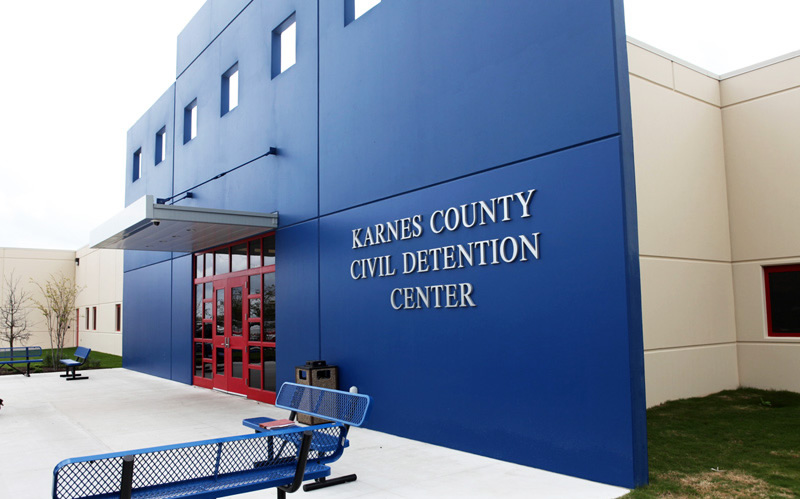A few weeks ago the U.S. Department of Justice announced they will end federal use of privately run prisons. Now their attention has turned to the country’s use of private immigration detention facilities. Department of Homeland Security Secretary Jeh Johnson said in a statement Monday that he has ordered the homeland security advisory council to review processes and costs related to these facilities.
Denise Gilman is the director of the Immigration Clinic at the University of Texas Law School. She says that the announcement is very much in line with the national conversation surrounding the use of private detention and corrections.
“Many of the same concerns that have been identified in the criminal justice context with privatized prisons are very much there in the immigration context as well,” Gilman says. “These facilities are treacherous because the private prison companies who operate them are working on a cost incentive of trying to keep costs low.
“That leads to dangerous conditions. Even on a bigger level, the concern is that the private prison companies have the wherewithal to influence detention decisions. So the policy impact of the role of private prison companies has been a real concern as well.”
Nearly 70 percent of all immigration detention facilities are privately run – with Texas home to about half of all the beds in the country. In a nation that spends on average $2.6 billion annually on immigration detention, this could be a big blow for the same private correctional companies who’ve already taken a hit in the wake of last week’s Department of Justice announcement.
Isaac Boltansky is an analyst at Compass Point Research & Trading LLC in Washington. He breaks down how much these rely on Immigration and Customs Enforcement contracts.
Boltansky says Corrections Corporations of America’s contract with ICE was about 24 percent of the private company’s revenue in 2015. GEO Group, Inc., another private company, has almost 18 percent of their revenue through ICE contracts.
“Out of the federal portion of these contracts, ICE is a significant portion for both of the publicly traded for-profit prisons,” Boltansky says. “I would note that Secretary Johnson’s statement doesn’t appear to be nearly as harsh as the Department of Justice memo that we saw a few weeks ago.”
None of this means a death knell to the companies who run private prisons and immigration detention units. Even without federal contracts, these companies would still earn a significant portion of their revenue from state contracts.
The Department of Homeland Security’s immigration facilities review is due no later than November 30.
















